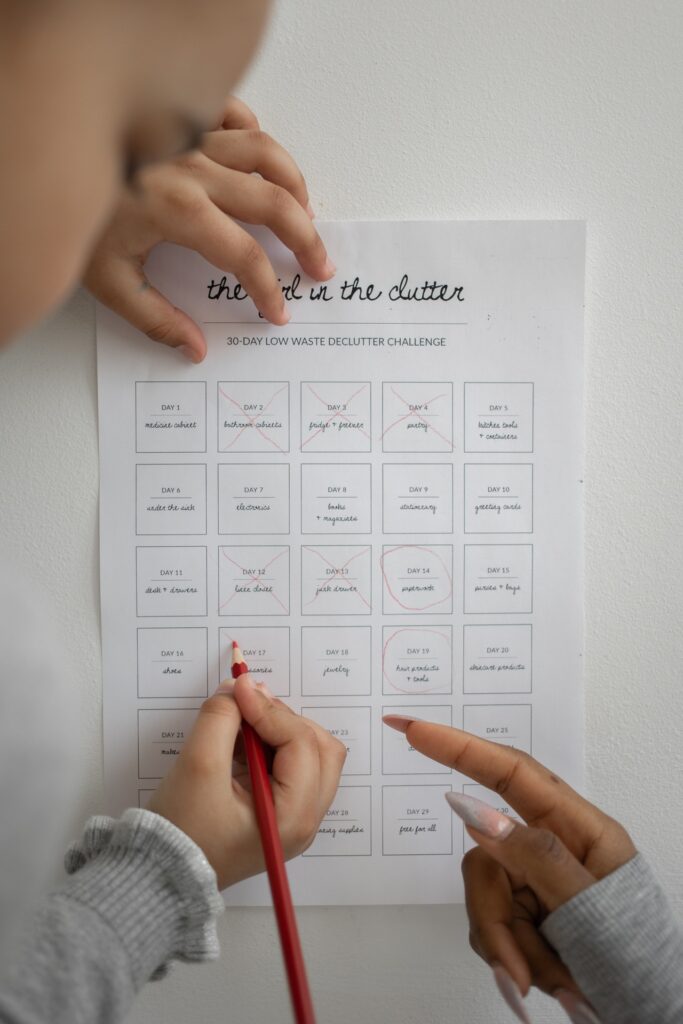11 Ways to Stand Up for Yourself

Standing up for yourself can be difficult for many people. And it might seem that those that do stand up for themselves are achieving the impossible. But, whether you’re shy, introverted, or may even have a mental illness that might be holding you back you still can learn to stand up for your needs little by little.
Here are 11 ways you can start the process of learning how to stand up for yourself and become a more confident person.
1. Learn why you struggle to stand up for yourself
Have you ever found it difficult to speak or express yourself when asked or confronted about something?
Standing up for yourself, being assertive, is supposed to be an instinctual action as it is a way of self-preservation. But, when that isn’t the case, when being assertive is not instinctual or it is difficult it may be a problem that is rooted in the past according to the Chelsey Psychology Clinic.
In a site article, the Chelsy Psychology Clinic stated that there were two common scenarios, based on childhood, that could contribute to you not being able to stand up for yourself as an adult.
“Maybe you were in a situation where you had strict parents and got shot down whenever you expressed yourself in any way”, says the Chelsey Psychology Clinic, “Or maybe you had parents that were over-reliant on you and you were afraid to hurt their feelings.”
Whichever the cause of the non-assertiveness is, it is important to find it and deal with it as it could lead you to fall into more unhealthy and toxic relationships. As well as impact you negatively in other areas of your life.
2. Be assertive

When it comes to being assertive though, it is much more than just standing up for yourself. Depending on where you look, the meaning of assertiveness oscillates between “being confident and not being afraid to say what you want or believe” and “confident and forceful behavior”.
While being confident is a big part of being assertive, experts will debate on the “forceful behavior” part. Because forceful behavior is a phrase that can be easily associated with pushing boundaries regardless of what the other person thinks, needs, or feels.
In fact, communications and skills experts, such as Skills You Need, state that the real meaning of being assertive is to” be able to stand up for your own or other people’s rights in a calm and positive way, without being either aggressive or passively accepting ‘wrong’.”
According to Skills You Need, this is because when you are being passive you are putting other people’s needs over your own to please them making you undermine your own needs, rights, and self-confidence. When you are being aggressive, on the other hand, you are disrespecting and not caring for other people’s needs or rights.
Both aggressiveness and passiveness will eventually push people away and have other people think less of you by how you act. Making you feel worse about yourself as well, worsening the problem of not being able to stand up for yourself.
This is why, when it comes to your relationships, it is better to be assertive. Speaking your truth while at the same time respecting other people’s beliefs and rights.
3. Learn about your needs and rights
Do you know your own needs and rights as a person? This is an important part of being assertive and learning how to stand up for yourself. Because it helps you to let other people know what you’re feeling and needing.
According to an article by Leon F. Seltzer, Ph.D., a doctor in psychology, “letting others know what you need and desire—as well as how you feel—demonstrates personal dignity, self-confidence, and respect.”
“Moreover, it can make others much more sensitive to the validity, or legitimacy, of your outlook”, the article continues, “In effect, you’re saying: ‘Look, I matter. I need you to take my point of view and feelings into account. Maybe you don’t think my position is as good as yours—but I still think it deserves to be taken seriously”.
It helps to know that every person’s individual rights, including yours, are so important that they are part of both natural and common laws.
4. Start small & Pick your battles

When you want to start becoming more assertive and confident, it is advisable to start small. Now, if you are the type of person that cannot pick up a phone and make or take a phone call, don’t start with that. Instead, start with something that is easier for you.
For example, if you were invited for a night out to the movies but you really don’t want to see that movie let the other person or people know. This is a small version of standing up for yourself.
Later on, you can begin tackling the big things like talking to people or even yourself about certain behaviors or patterns that are not helping your relationship. But, before reaching that level, it is advisable to start small.
5. Be selfish
Society has demonized being selfish for the negative consequences that it can have if taken too far. But, being selfish once in a while and taking care of yourself is not bad at all. In fact, focusing on yourself from time to time can help you have more energy and be happier in the long run.
Remember that you use a lot of your own resources when you are helping, interacting, or pleasing other people. If you get depleted then there will be nothing left for you or for them. It could even create illness.
6. Say No
Do you feel like you’re rejecting someone whenever you’re saying you don’t like something or suggest something else? Doing this is a form of rejection but that doesn’t mean that the other person will automatically get hurt by you saying no.
While “No”, is a full sentence and you don’t owe anyone explanations. Part of being assertive is communicating to the other party your point of view and your needs. So, start practicing giving a small explanation or reasoning whenever you need to say no. Not too much, not too little but enough so that the other person can understand how you’re feeling.
7. Create Boundaries
Do you always find it difficult to say no or have people that for some reason tend to barge in on you?
In order to know what kind of boundaries you need to set up, you need to know yourself as well as observe the behaviors of others. Ask yourself, what is it that you want or like of a given situation. Write that down, as well is what you find that you don’t like, what you find hurtful or disrespectful and begin to communicate to others that.
For example, if someone you just met online asks you for a picture or phone number and you’re uncomfortable with that you can say something like “I am not comfortable giving that kind of information out yet. But maybe I will be more comfortable once we get to know each other better”.
8. Be consistent

For those of us that find it difficult to express ourselves, consistency is key in order to create new habits and get used to standing up for ourselves.
To be consistent you first need to decide how you will be consistent in standing up for yourself. Maybe it’s telling your loved ones that you wish to be alone whenever you have to study for an exam or you decide that you will not be engaging with a certain person again.
After you have thought about it and have your plan, it is a matter of sticking to it. Although sticking to a plan to change habits and behaviors is hard, it isn’t impossible. According to Psychology Today, the time it takes someone to change a habit depends on the person and it could be between a few weeks and a few months.
So, try to stick to your plan as much as possible. Keep in mind that you might fall out of it and go back into it again many times until it finally sticks. Don’t lose courage and keep going, you are worthy of this.
9. Realize your own worth
Do you struggle with feelings of unworthiness? As you begin to get the root of what is causing you to not stand up for yourself and your own needs, you start to get to know yourself better and realizing your own worth.
Not only that but you can start improving in the areas you feel need improvement. And not only feel satisfied but also strengthen your confidence in yourself which will, in turn, help you stand up for yourself, take better care of yourself and create boundaries.
10. Start using “I” whenever you talk
For many people, using “I” when we talk or ask for something is uncomfortable because it makes us vulnerable. But it is this vulnerability and humanization that makes the other party sympathize and connect with you when you are expressing or standing up for yourself.
11. It is ok to disagree
Do you find disagreements scary? Well, you’re not alone. When we think of disagreements we picture huge fights that end up hurting both parties or fuel our anger and get us nowhere. But, disagreements don’t have to be like that.
We won’t always agree with each other and that’s ok. We all come from different backgrounds and experiences that differ from other people and we won’t always understand each other but that doesn’t mean we can’t respect each other.
Remember that being assertive means that you think of both your rights and the other person’s rights while communicating your needs in a respectful way. If both parties can do that, then there will be no bad endings to your disagreements. Only an agreement to disagree.
Now, if the other party is not acting in a respectful way then the advice is to take some time apart, catch your breath and then sit down to talk when both of you are calm. This way you prevent things escalating into hurting each other and you both can think things through.

References:
2011-2021, S. Y. N. (n.d.). Assertiveness – an introduction. SkillsYouNeed. Retrieved from https://www.skillsyouneed.com/ps/assertiveness.html.
Ashley, S. (2020, November 9). How to stand up for Yourself: 18 real steps to take even if you’re the Shyest person in the room. PureWow. Retrieved from https://www.purewow.com/wellness/how-to-stand-up-for-yourself.
How to stand up for yourself (and why you find it so difficult). The Chelsea Psychology Clinic. (2020, August 6). Retrieved from https://www.thechelseapsychologyclinic.com/uncategorised/how-to-stand-up-for-yourself/.
Psychology Today Staff. (n.d.). Habit formation. Psychology Today. Retrieved from https://www.psychologytoday.com/us/basics/habit-formation. Seltzer, L. F. (2012, September 5). How, and how not, to stand up for yourself. Psychology Today. Retrieved from https://www.psychologytoday.com/us/blog/evolution-the-self/201209/how-and-how-not-stand-yourself.



Responses